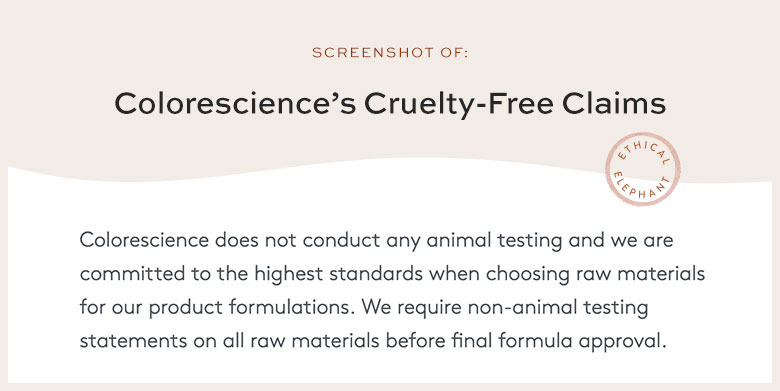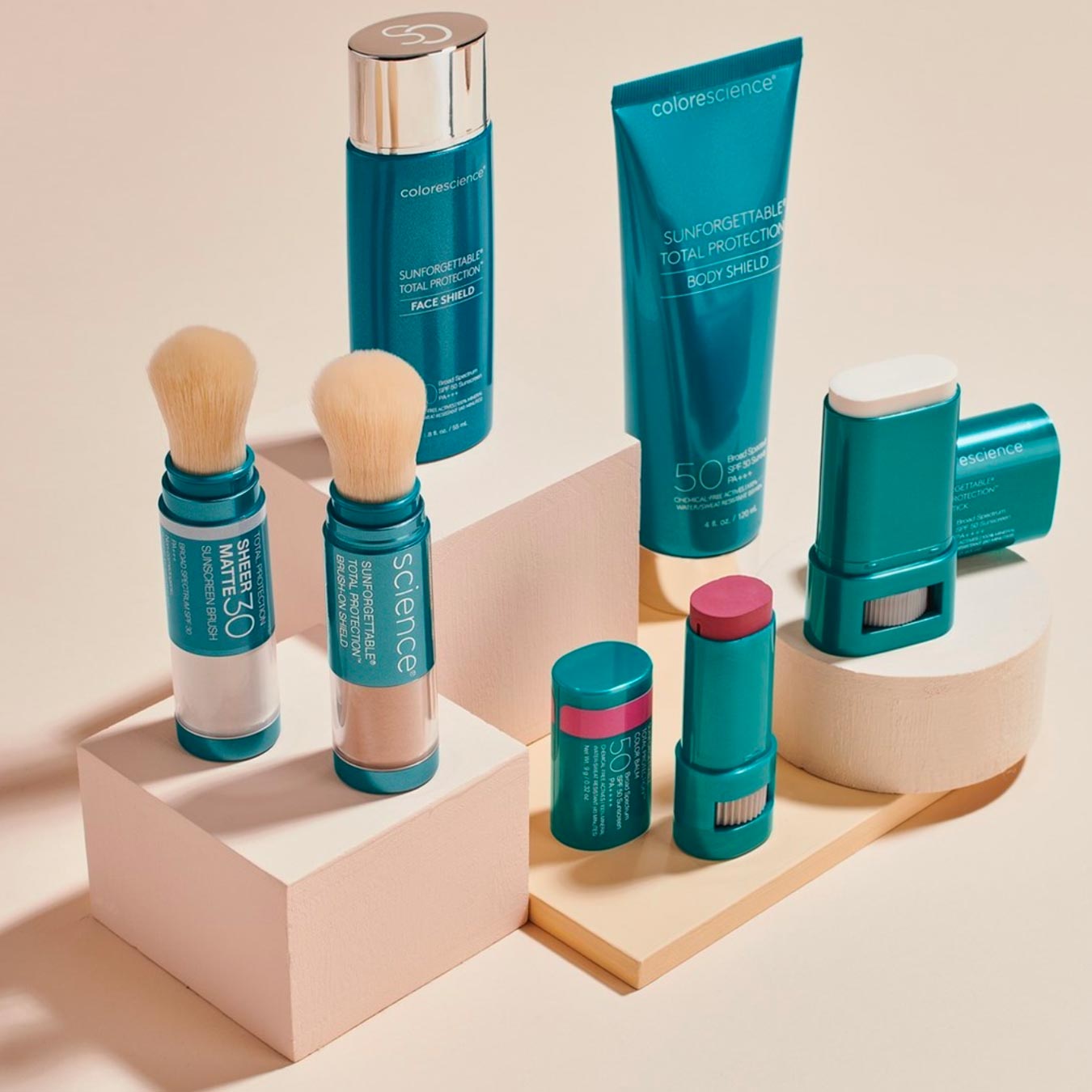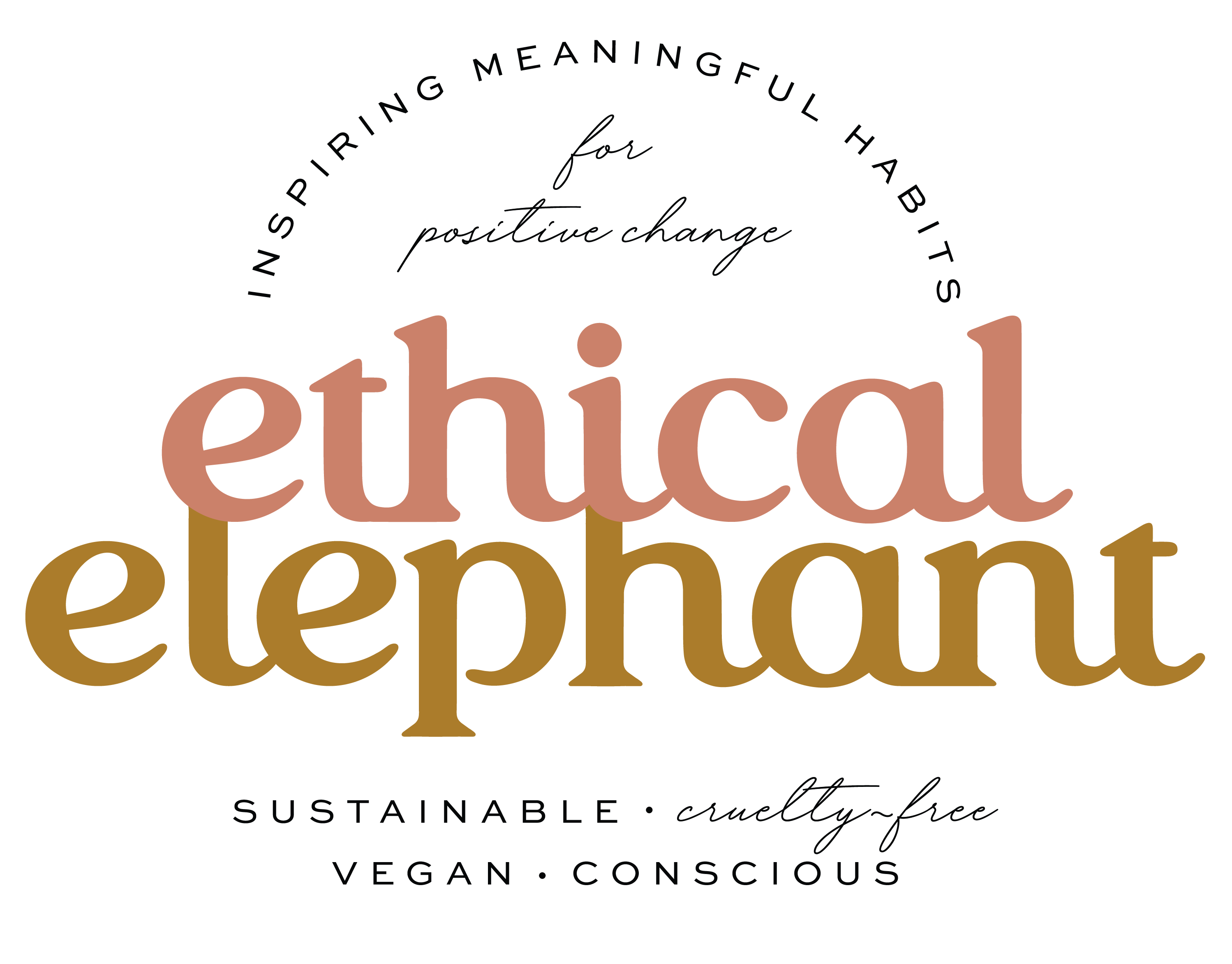This post may contain affiliate links that at no additional cost to you, I may earn a small commission.
You can find Colorescience cruelty-free products at colorescience.com, Nordstrom, Dermstore, and Amazon.
Colorescience is Cruelty-Free
Colorescience has confirmed they do not test their products or ingredients on animals or ask others to test on their behalf. Their suppliers also do not test on animals, nor do they allow their products to be tested on animals when required by law. And finally, their products are not sold in stores in mainland China or any other country that may require animal testing.
By our standards, we would consider Colorescience to be Cruelty-Free.
Below is a screenshot of what’s currently stated on Colorescience’s website about its animal testing policy:

What About China’s Animal Testing Laws?
Colorescience has confirmed they do not sell in mainland China; therefore, they are not required to test on animals.
“we do not have a Colorescience distributor in China.”
As of May 1, 2021, some imported ordinary cosmetics can be exempt from animal testing under certain conditions. However, for the most part, animal testing is still legally required for most imported cosmetics in 2022.
Cruelty-Free Policies
Note that there is no legal definition for the label ‘Cruelty-Free.’ It can mean different things to different people. But Cruelty-Free is generally used to imply no animal testing. More specifically, the ingredients, formulation, or finished product are not tested on animals at any stage of product development.
At ethical elephant, we always assess a company’s cruelty-free policy using our Cruelty-Free Checklist. This ensures no animal testing was performed by the brand itself, its suppliers, and by any third parties.
Also, note that Cruelty-Free and Vegan don’t always mean the same thing.
Colorescience is Not 100% Vegan
‘Vegan’ in cosmetics can refer to an entire brand that is 100% Vegan or a specific product is vegan.
In the case of Colorescience, not all of their products are vegan. But they have some products that are suitable for vegans.
“Not all of our products are vegan as we do have beeswax, milk lipids, and carmine in some of our products. Each Colorescience product has a full list of ingredients listed on their product page.”
How to know which of Colorescience products are vegan?
Colorescience labels their vegan products in the product description of their website, in the “Ingredients” tab. Also, Colorescience made the following statement on their website:
“There are no animal products or derivatives in the following Total Protection™ product: Brush-On Shield SPF 50, Sheer Matte SPF 30 Sunscreen Brush, all shades of Face Shield SPF 50, all shades of Body Shield SPF 50, Sport Stick SPF 50, blush and bronze Color Balms. The berry Color Balm contains carmine. All Colorescience® products are 100% free from parabens, phthalates, synthetic fragrance, animal testing, talc, dyes, mineral oils, drying alcohols & chemical sunscreen.”
Vegan Policies
Similar to ‘Cruelty-Free,’ there is no standard or legal definition for the label ‘Vegan.’ But it usually means no animal-derived ingredients or animal by-products.
Some common animal products used in cosmetics include carmine, lanolin, snail mucus, beeswax, honey, pearl or silk-derived ingredients, animal-based glycerin, keratin, and squalene.
There are plant-based and synthetic alternatives to animal-derived ingredients. But it’s sometimes difficult to know with certainty whether a product is vegan just by reading the ingredient list.
So it’s best to ask the company and manufacturers to ensure the ingredients they’ve chosen to use were from non-animal sources.
Where are Colorescience’s products made?
I asked Colorescience where their products are manufactured and they told me:
“Our products are manufactured in the US.”
Ethical Mica Mining Policy
Mica is a mineral that’s used in cosmetics to add a shimmery effect. But the mining of natural mica has been linked to child labor and human rights violations.
Unless the company discloses its mica mining policy, we have no way of knowing whether its mica is ethically sourced without child or forced labor.
So I asked Colorescience if their mica is ethically sourced without the use of child labor and they responded by stating,
“Our mica vendors adhere to global regulations pertaining to the quality and safety of cosmetic ingredients. The mica used in Colorescience products is mined and processed to meet consistent standards of high quality, safety, and aesthetics. The mica passes or exceeds the standards for heavy metal and microbial testing. The micas are ethically sourced from various parts of the world, Japan, and the U.S. Our raw material vendors have supplied statements that the mica is ethically sourced.”
I hope this article helped you to understand Colorescience’s cruelty-free and vegan status and by choosing cruelty-free together, we can help end animal testing for cosmetics once and for all!







